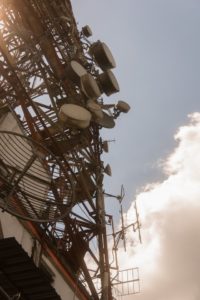The Bill of Rights, which contains the first ten Amendments of the United States Constitution, was ratified in 1791.[1] It guarantees certain civil liberties and protections. This includes the right against “unreasonable search and seizure,” which is contained in the Fourth Amendment and reads as follows:
“The right of the people to be secure in their persons, houses, papers, and effects, against unreasonable searches and seizures, shall not be violated, and no Warrants shall issue, but upon probable cause, supported by Oath or affirmation, and particularly describing the place to be searched, and the persons or things to be seized.”[2]

When this Amendment was written, the world was a very different place. The drafters could not have envisioned the way technology and the Bill of Rights would intersect. And so, it has been up to the courts to determine whether the government’s use of certain technologies violates the right against unreasonable searches and seizures. If the government violates a defendant’s constitutional rights, any evidence found as a result of the violation is inadmissible.
This can raise the question of whether or not a given police action is a “search or seizure.” Because if the action is a search or seizure, under the terms of the Fourth Amendment, a valid warrant is required. There are obvious examples of searches; police enter a home to look for evidence of a crime, physically look through a person’s vehicle for evidence, etc. But when technology comes in to play, the question of what constitutes a search is often open to court interpretation.
The Supreme Court of the United States has answered the specific question of whether attaching a GPS device to a vehicle to monitor its movement qualifies as a search under the language of the Fourth Amendment.

In United States v. Antoine Jones, the FBI and Washington D.C. police attached a hidden GPS device on a vehicle while it was in a public parking lot.[3] Police had a warrant to attach the device, but the terms of the warrant required that the attachment be done within Washington, D.C. and within ten days of the warrant. Police installed the device after eleven days while the vehicle was in Maryland. The vehicle was tracked for 28 days, and the data collected from the device was used to secure an indictment against Mr. Jones for drug trafficking conspiracy charges. The case made it all the way to the Supreme Court of the United States to answer the question of whether the attachment and use of the GPS device qualified as a search under the Fourth Amendment.
The late Justice Antonin Scalia wrote the unanimous opinion, which held that the installation was a “search” within the meaning of the Fourth Amendment and therefore a valid warrant was required to use the evidence collected. Because the GPS device was attached outside the terms of the warrant, the evidence gathered was inadmissible.
Though modern courts and criminal defendants regularly face situations not contemplated by the drafters of the Bill of Rights, the protections granted by the document still hold true. We now know that police cannot track your vehicle with a GPS device without a valid warrant. There may be other questions in the future regarding the use of technology in police investigations, but this decision provides a solid answer to the question of GPS location of vehicles, and gives us some indication of how the Supreme Court may rule on similar issues.
[1] https://www.archives.gov/founding-docs/bill-of-rights/how-did-it-happen
[2] U.S. Const. amend. IV
[3] https://www.supremecourt.gov/opinions/11pdf/10-1259.pdf





